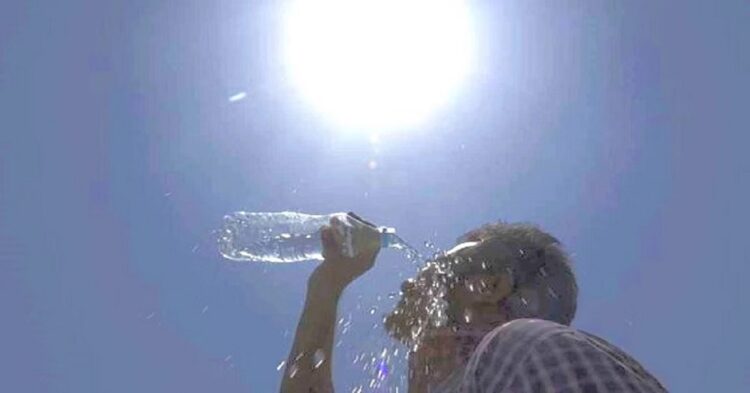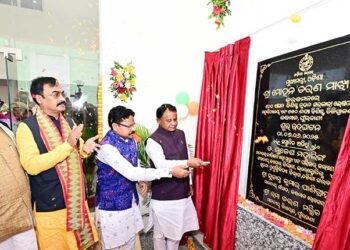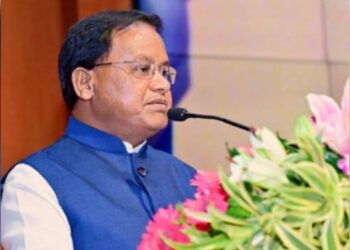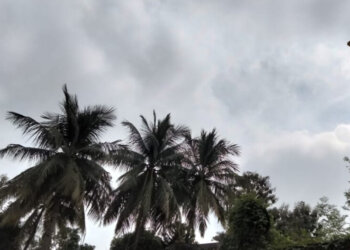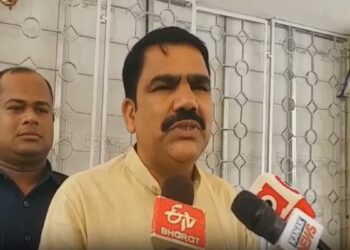In response to the summer heatwave, Housing and urban Development Minister Krushna Chandra Mahapatra reviewed the different steps implemented in metropolitan areas on Friday.
According to an official news release, during the inspection, Minister Mahapatra issued strong directions to ensure no lack of drinking water, make non-functional tube wells operational, activate 24×7 control rooms, and swiftly resolve public complaints. He suggested rigorous adherence to the department’s rules for dealing with the summer heatwave.
The department’s directive emphasizes that erratic rainfall and unexpected weather patterns have resulted in an extraordinary spike in temperatures during the summer season. Additionally, urban people are facing higher temperatures as a result of huge buildings, wide highways, and heat-absorbing infrastructure.
Given the circumstances, the Housing and Urban Development Department produced a thorough Standard Operating Procedure (SOP) and urged its rigorous adherence. Usha Padhee, Principal Secretary of the Department, offered thorough information on the procedures that all urban local authorities must take.
The regulation specifies that appropriate drinking water supply must be provided in all urban areas. To do this, water supply pipelines should be kept in good operating order, and any concerns about water supply should be resolved within 24 hours. Emergency steps should be implemented to ensure drinking water supply, and water tankers should be deployed in strategic places. Additional tankers can be arranged if needed.
All tube wells and hand pumps must be kept operable, with spare parts readily available for repairs. To address water shortage problems, control rooms should remain open as scheduled and controlled by appropriate authorities.
The Indian Meteorological Department’s (IMD) heatwave notifications should be monitored on a regular basis, and communication with the IMD or State Control Room should be established as needed.
With the assistance of voluntary organizations, urban local governments should begin establishing additional water kiosks—drinking water distribution centers—in important areas such as road corners, intersections, government offices, bus stops, railway stations, and markets. These kiosks should provide potable water and employ long-handle dispensers. Water should be changed every day, and proper hygiene should be followed.
Organizations that set up such facilities for publicity and discontinue them after the initial days should be excluded, and strict action should be taken against them.
Municipalities should take strict measures to prevent the burning of solid trash, garden debris, and tree leftovers. To improve hygiene, the public should be made aware that a container of water should be kept outside residences for birds and changed daily. Roadsides should be cleaned according to laws. To control flying dust, use the following measures:
building companies and homeowners should cover their building sites with tarps or similar materials to keep dust from spreading. Open areas should be watered on a regular basis. They must also dispose of debris and broken objects safely and swiftly, or face penalties.
Vehicles delivering construction materials such as sand, bricks, cement, and waste should be completely covered in tarpaulin sheets and their movement restricted. The soil level around roadways should be kept lower than the metal layer to avoid rainwater or vehicle movement from pushing it back onto the road surface.
Ash from gasoline used by roadside hotels and food booths frequently accumulates on roadways, contributing to dust pollution and rising temperatures. The usage of coal or coal briquettes should be prohibited in all cities.
All bodies of water in and around cities should be repaired, regenerated, and maintained so that they can be used and accessed by the public while being pollution-free.
All environmental laws, regulations, and guidelines aimed at enhancing the urban environment should be carefully enforced. The police, forest, and health departments, as well as other relevant authorities, have been encouraged to carry out their obligations effectively.
The virtual meeting was attended by Municipal Director Arindam Dakua, Additional Chief Secretary Rabindra Sahoo, Commissioners of all Municipal Corporations, Executive Officers of Municipalities and NACs, and other relevant officials.







 Finance
Finance